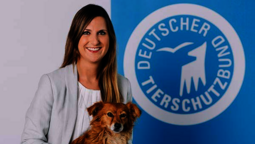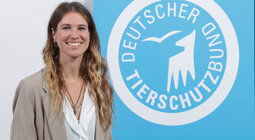The German Animal Welfare Federation welcomes the initiative to revise the European regulation on the transportation of farm animals. Yesterday, the majority of the EU Agriculture Council voted in favor of a position paper with concrete demands on animal transport, which was submitted by Denmark, the Netherlands, Belgium, Sweden and Germany. At the same time, however, the German Animal Welfare Federation points out that the German government can and must also take action at national level to prevent animal transports to countries outside Europe.
“The amendments to the EU Transport Regulation proposed in the position paper are not sufficient, but would still be a major step forward. For example, the fact that animals for slaughter may be transported for a maximum of eight hours is positive. However, the same must apply to animals that are not transported to the slaughterhouse but to the fattening farm,” says Thomas Schröder, President of the German Animal Welfare Federation. The long-term goal must be that animal transports in the EU are not only carried out under better conditions, but that they only take place over short distances. Transports to countries outside Europe must be stopped. In future, meat or genetic material should be transported instead of live animals.
NATIONAL BAN IS POSSIBLE
The German Animal Welfare Federation also emphasizes that it will be years before conditions change in practice. The EU has announced a revision of the existing EU transport regulation and intends to present a proposal by the end of 2023. “We don't have that much time. Germany must now take on a pioneering role and ban transports to countries outside Europe,” says Animal Welfare Federation President Schröder. A ban on transports to certain third countries that do not comply with minimum standards for husbandry and slaughter could be imposed uniformly by the German federal states, according to a recent study1 by the Bundestag's scientific services. In this way, long-distance transports from Germany could be ended promptly.





